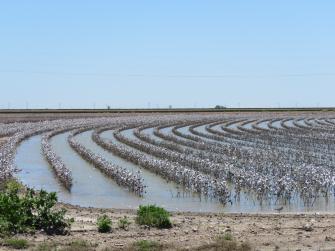June 28, 2019
The global warming that’s causing our climate crisis is already having dire consequences. In just the past few decades:
- Rising temperatures have worsened extreme weather events.
- Chunks of ice in the Antarctic have broken apart.
- Wildfire seasons are months longer.
- Coral reefs have been bleached of their colors.
- Mosquitoes are expanding their territory, able to spread disease.
What’s causing this climate crisis?
It’s mainly us.
Humans are the main cause of climate change — we burn fossil fuels and chop down forests, causing average temperatures to rise worldwide. That global warming trend is increasingly disrupting our climate — the average weather over many years.
Earth has already warmed by about 1 degree Celsius, or 1.8 degrees Fahrenheit, since the 19th century, before industry started to boom.
While we experience the effects, we’re on our way toward 1.5 degrees C (2.7 F) by as early as 2030.
3 big ways climate change is impacting your life
Why a half-degree more is such a big deal

A warmer world — even by a half-degree Celsius — has more evaporation, leading to more water in the atmosphere. Such changing conditions put our agriculture, health, water supply and more at risk.
Picture a North Carolina cotton farm that’s been around since 1960, with global average temperatures rising by roughly half a degree since it grew its first crop.
The increased evaporation and additional moisture to the atmosphere has led to 30% more intense rain during heavy downpours in that part of the U.S.
Then a hurricane like 2018’s Florence — already strengthened by warmer oceans and higher seas — dumps this excess rainfall on the farm. The crops get more flooded and damaged than they did half a century ago.
It’s how you go from half-degree of warming to economic hardship.
How climate change makes makes hurricanes more destructive
There’s still time to act
Whether it’s a shift of 1.5 degrees or 2 degrees, these warming levels aren’t magic thresholds. Every rise in warming is worse for the planet than the last.
But they’re not inevitable.
It’s not too late to slow the pace of climate change and avert the worst impacts of the climate crisis — as long as we act today. With your help, we can attack this challenge.







